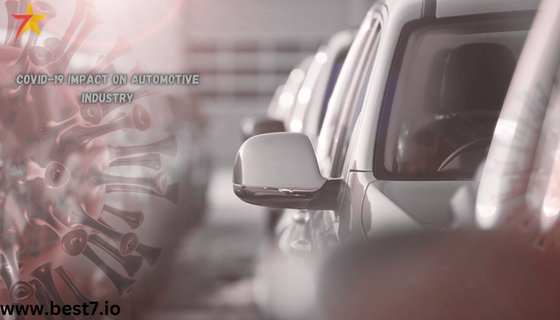
The effects of the COVID-19 pandemic on each market trend and consumer behavior in the automotive market have been significant. Consumers worldwide have responded to the crisis by altering their purchasing habits and preferences, as lockdowns were imposed and social distancing measures became the norm. Consequently, the automotive industry has adapted, leading to major shifts within the market. This post analyzes the impact on car-buying habits, the shift toward electric vehicles, and explores why the effects of COVID-19 may be felt longer than expected in the automotive sector.
Consumer Behavior Changes: The New Reality
The COVID-19 pandemic has profoundly impacted consumer behavior, and as a result, the automotive market has experienced several notable shifts. A recent McKinsey study revealed that more than 60% of car buyers reported that their approach to purchasing cars had been significantly altered due to COVID-19. Several key factors have influenced these changes.
Health and Safety Concerns: The Priority for Consumers
Health and safety are now paramount for consumers during the COVID-19 pandemic. The fear of contracting the virus from public transportation has led many individuals to switch to personal vehicles as a safer alternative.
- Rising Affinity for Personal Vehicles: A report by Edmunds found that 45% of transit-dependent consumers expressed interest in purchasing another vehicle for safety reasons. This shift led to increased car sales, particularly in the second half of 2020, as people distanced themselves from crowded public transport.
The Shift to Online Car Sales: A Digital Transformation
The pandemic accelerated the transition to online car sales, with many traditional dealerships being restricted or closed. Consumers began to rely on digital platforms for their car-buying experience rather than visiting physical locations.
- Online Sales Platforms Grow: Sales on automotive e-commerce platforms like Carvana and Vroom saw remarkable growth. Cox Automotive reported that online car sales reached 70% of 2019 volumes, allowing consumers to manage their entire car purchase process from the comfort of their homes, including vehicle selection, financing, and delivery.
- Digital Showrooms and Test Drives: Dealerships introduced digital showrooms and contactless test drives to accommodate consumers’ need for safety. According to Dealer.com, during the pandemic, 56% of dealerships with online operations offered tools to help customers browse inventory and complete purchases.
Feature Re-Prioritization in Cars: Shifting Consumer Priorities
As consumer needs evolved during the pandemic, so did their preferences for car features. Functionality, safety, and convenience became the top priorities for buyers.
- Focus on Safety Features: The pandemic has increased the demand for cars with standard safety features such as contactless entry, ADAS, and upgraded air filters. A J.D. Power survey found that 78% of consumers stated that safety functions played a significant role in their decision-making process during the pandemic.
- SUV and Crossover Preference: A sharp preference for SUVs and crossovers emerged, as these vehicles were seen as safer and more spacious, especially for families. By early 2020, sales of SUVs were 20% higher than in previous years, as reported by Automotive News.
The Growing Demand for Electric Vehicles (EVs)
The COVID-19 pandemic has also fostered a growing interest in electric vehicles (EVs), as consumers reconsider their environmental impact and embrace more sustainable transportation options.
- Electric Vehicle Sales Growing: According to the International Energy Agency (IEA), global electric vehicle sales rose by 43% in 2020, even amid a broader slump in automotive sales. Factors such as government incentives, reduced running costs, and increasing awareness of climate change have driven this growth.
- Government Support and Incentives: In the U.S., federal tax credits of up to $7,500 for EV purchases, along with additional state-level incentives, have made EVs more appealing to consumers seeking environmentally friendly transportation solutions.
Automotive Industry Recovery Post-COVID: A New Path Forward
While the automotive industry is still grappling with the impacts of the COVID-19 pandemic, recovery is underway. However, shifting consumer habits and supply chain challenges will require automakers to adapt.
Production and Supply Resilience: Strengthening the Supply Chain
The pandemic revealed the vulnerabilities of the automotive supply chain, prompting manufacturers to reassess their strategies.
- Supply Chain Diversification: According to a PwC report, 70% of automotive executives are now focused on diversifying their supply chains to reduce reliance on specific regions. This strategy aims to enhance the resilience of production capabilities.
- Increasing Adoption of Local Sourcing: Many automakers are prioritizing local sourcing of components to reduce the risk of global supply chain disruptions and to enhance responsiveness to market demands.
Improving Sustainability and Innovation: A Push Toward Green Technology
The pandemic has accelerated the automotive industry’s move toward sustainability and innovation, driving manufacturers to invest in green technologies and eco-friendly practices.
- Volkswagen’s Commitment to Sustainability: For example, Volkswagen has committed to spending $86 billion on electric mobility and sustainable production by 2025, aligning with a broader strategy for carbon neutrality by 2050.
- Manufacturing Process Innovations: Manufacturers are also exploring new production techniques, such as 3D printing and modular production, to increase efficiency, reduce waste, and meet consumer demand for sustainable vehicles.
Adapting to Market Trends: Embracing Connectivity and Personalization
As consumer behavior evolves, automakers are adapting to new market trends and enhancing the consumer experience.
- More Emphasis on Connectivity: With consumers becoming more tech-savvy, automakers are increasingly focusing on integrating advanced connectivity features such as infotainment systems, smartphone connectivity, and over-the-air software updates. Statista forecasts that the global connected car market will be worth $225 billion by 2025.
- Personalized Consumer Experiences: Automakers are using data analytics and artificial intelligence to create personalized experiences for customers. Accenture found that 75% of consumers are more likely to purchase from brands that recognize them by name and offer recommendations based on their purchase history.
Upcoming Challenges and Opportunities in the Post-COVID World
The post-COVID automotive industry will face several challenges but also numerous opportunities to innovate and grow.
- Economic Uncertainty: Ongoing economic instability may affect consumer spending and automotive sales, requiring automakers to remain agile and responsive to changing market conditions.
- Technological Advancements: The continued development of electric vehicles, autonomous driving, and connected technologies will provide automakers with new opportunities to redefine their market positions.
So What’s Changed in Consumer Behavior and for Whom?
As the automotive industry navigates the post-pandemic landscape, certain consumer behaviors will likely persist.
- Shift Toward Online Shopping: Online car shopping is expected to remain a significant trend, as consumers increasingly prefer the convenience of researching and purchasing vehicles from home. Automakers will need to refine their online sales platforms to meet this growing demand.
- Growing Demand for Green Automobiles: With heightened awareness of climate change, the demand for green vehicles, particularly electric vehicles, is set to increase. As EVs become more affordable, consumers will increasingly seek out environmentally friendly transportation options.
The Automotive Industry in the Post-COVID Era
COVID-19 has dramatically altered the automotive industry, reshaping consumer behavior and market trends. The industry is evolving, and automakers that embrace these changes, particularly in technology, electric vehicles, and sustainability, will thrive in a post-pandemic world. The automotive sector’s ability to adapt will determine which companies lead the market in the years to come.












